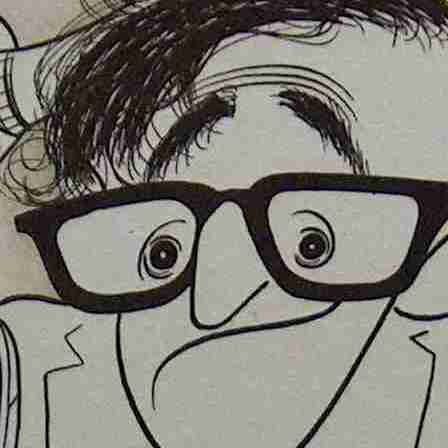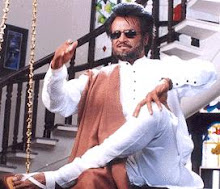I spent the whole night sitting by the door, staring outside at the darkness punctuated by the occasional light from a passing town, or little, insignificant railway stations. I could almost hear thatha's voice saying, "ACku danda selavu..." When the train chugged past one of these stations, I put my head out and waved at the diminutive station master standing with his green light. He waved back. I wished I had a camera.
The experience of having the chill wind of the receding monsoon bite your face while you contemplate the vagaries of life, romantic as it sounds, is painful, and comparable to spending an evening with an insurance salesman. It reminds you of everything that could go wrong with your life. In all seriousness, there was little wrong with my life at that moment. But, I remembered small things that would sting later on - like the fact that I had left my geyser on and come away to
I couldn't imagine him sick and confined to a bed. He was never the physically fit sort, but was never unfit. Every morning, he walked from his bedroom to his easy chair, the full extent of his movement on an average day, from where he sermonised, theorised, meditated and meted out justice to his subjects – the other inhabitants of his house. When he once refused to move to
***
A few minutes before sunrise, as usual, Paati woke up, brushed and went to the door to pick up milk and the newspaper. She cursorily glanced at the headline about women becoming the head of state, and started boiling milk for morning coffee. She checked if there was enough decoction (pronounced di.gaa.shun). He woke up, just afterwards, when he smelt the coffee, and saw the first rays of sunlight peeking through his windows.“Oy, turn on the radio!” he hollered from his room. Sure enough, an unrecognisable voice was heard throughout the house singing Raga Ataana. Hardly anyone sings Ataana these days, he thought to himself. The voice wasn’t doing a bad job at all.
“Oy, I have to brush,” he hollered again. Paati came to the bed with his brush, and a bowl and a glass of water. When he was done, she said, “I’ll get you the coffee.” And the coffee came, along with the newspaper. And he sat up, with coffee in one hand, and the Hindu newspaper in the other, excitedly checking if his letter to the editor had been published. Once when someone told him that it was pointless to send letters to the editor because only retired Tamilians from Mylapore wrote to the editor, and only other retired Tamilians from Mylapore read these comments, he was outraged and never spoke to that person again.
“Oy, my letter about the bad road in front of our house has come in the Hindu!”
“I don’t know why you bother. You haven’t used that road in three months!”
Reading the Hindu every morning, sipping coffee and in an old veshti and torn banian was a way of life inThe radio in the background was now executing a complex Pallavi in Ataana. Thatha put the Hindu down, and hollered yet again, “Turn up the volume.” The music now filled the house, and Paati began to hum along. Thatha was keeping talam and nodding in appreciation every now and then.
“A-one,” he declared when it ended, using one of those typically
***
When I haggled down the fare to thirty-five, I paid the auto driver and climbed the flight of stairs to the house. I was ready to face a forlorn thatha. The door was open, as always. When I entered the drawing room, I heard from the bedroom a voice saying, “…the gall to come to
“Thatha!” I exclaimed in relief, “How are you?”
“Oh, I’m fine. Just immobile, that’s all. Frankly, I’m enjoying it. People do everything for you. You just sit around like a king and enjoy”
He wasn’t forlorn or sick. In his own words, he was just immobile. Who said nothing is constant but change?






